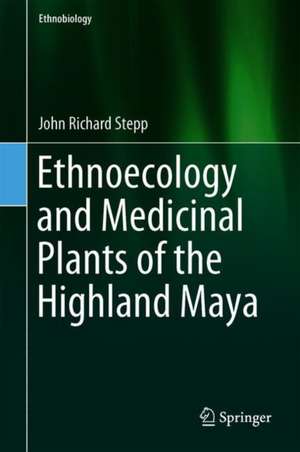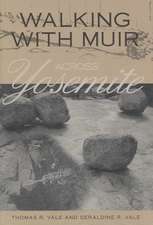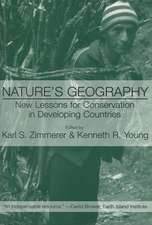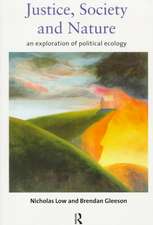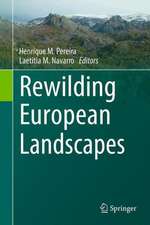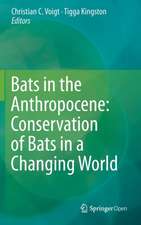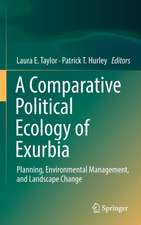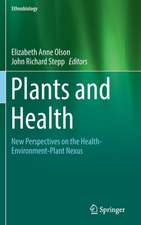Ethnoecology and Medicinal Plants of the Highland Maya: Ethnobiology
Autor John Richard Steppen Limba Engleză Hardback – 8 noi 2018
| Toate formatele și edițiile | Preț | Express |
|---|---|---|
| Paperback (1) | 545.30 lei 38-44 zile | |
| Springer International Publishing – 22 dec 2018 | 545.30 lei 38-44 zile | |
| Hardback (1) | 638.43 lei 22-36 zile | |
| Springer International Publishing – 8 noi 2018 | 638.43 lei 22-36 zile |
Preț: 638.43 lei
Preț vechi: 751.10 lei
-15% Nou
Puncte Express: 958
Preț estimativ în valută:
122.16€ • 127.89$ • 101.08£
122.16€ • 127.89$ • 101.08£
Carte disponibilă
Livrare economică 17-31 martie
Preluare comenzi: 021 569.72.76
Specificații
ISBN-13: 9783319693132
ISBN-10: 3319693131
Pagini: 290
Ilustrații: IX, 112 p. 74 illus., 66 illus. in color.
Dimensiuni: 155 x 235 mm
Greutate: 0.36 kg
Ediția:1st ed. 2018
Editura: Springer International Publishing
Colecția Springer
Seria Ethnobiology
Locul publicării:Cham, Switzerland
ISBN-10: 3319693131
Pagini: 290
Ilustrații: IX, 112 p. 74 illus., 66 illus. in color.
Dimensiuni: 155 x 235 mm
Greutate: 0.36 kg
Ediția:1st ed. 2018
Editura: Springer International Publishing
Colecția Springer
Seria Ethnobiology
Locul publicării:Cham, Switzerland
Cuprins
Preface.- Introduction.- Identifying medicinal plants used.- The role of environmental variation on use and selection.- Identifying preferred habitats.- Importance of human modified environments for medicinal plants.- Human ecology and biochemical ecology.- Implications for conservation, health, and the environment.- Index.
Notă biografică
Dr. John Richard Stepp serves as Associate Professor of Anthropology and Latin American Studies at the University of Florida. For the last decade he has conducted ethnobiological research with the Tzeltal Maya in Highland Chiapas, Mexico. He currently coordinates an interdiscplinary research program in the Maya Forest of Belize, Guatemala and Mexico. His research explores persistence, change and variation of traditional ecological knowledge and ethnobotany.
Textul de pe ultima copertă
Plants play a central role in human existence. Medicinal plants, in particular, have allowed for the continued survival of the human species. This book, based on over a decade of research in Southern Mexico with the Highland Maya, explores the relationship between medicinal plants, traditional ecological knowledge and the environment. The biodiversity of the region remains among the highest in the world, comprising more than 9000 plant species. Over 1600 employed for medicinal uses and knowledge for approximately 600 species is widespread. Medicinal plants play an overwhelmingly primary role in the daily health care of the Highland Maya. Three principal objectives are addressed: 1) identifying which medicinal plants are used; 2) determining the role of environmental variation on use and selection of medicinal plants; and 3) identifying which habitats are preferred for medicinal plant procurement. Findings demonstrate the overwhelming importance of human modified environments for medicinal plants. Explanations are presented from human ecology and biochemical ecology. Implications for conservation, health and the environment are discussed.
Caracteristici
The only comprehensive ethnoecological study of medicinal plants of the Highland Maya Written by the leading researchers in the field Covers a broad range of disciplines but written in an accessible manner for the educated public
